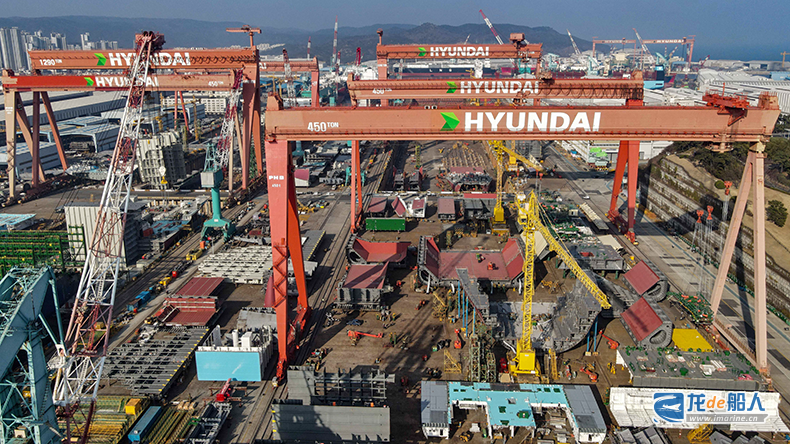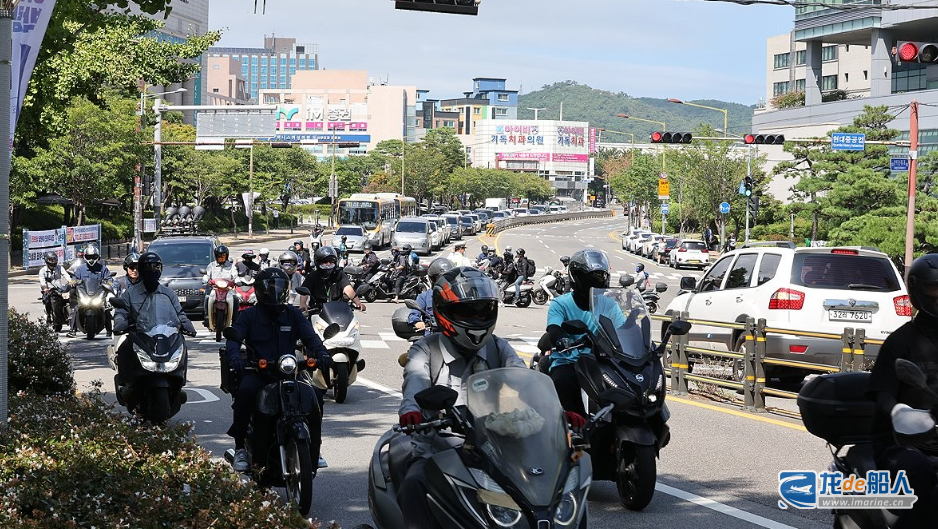HD Hyundai’s decision to merge its two major shipbuilding subsidiaries, HD Hyundai Heavy Industries and HD Hyundai Mipo, has been met with strong opposition from labor unions. This marks HD Hyundai’s first major restructuring since the establishment of HD Korea Shipbuilding & Offshore Engineering (HD KSOE) as an intermediate holding company for its shipbuilding business in 2019. To make matters worse, HD Hyundai’s shipbuilding subsidiaries have launched a joint strike.

According to reports from Lloyd’s List and South Korea’s The Korea Economic Daily, the labor unions of HD Hyundai Heavy Industries and HD Hyundai Mipo are jointly opposing the merger plan that the two companies intend to implement in December, citing concerns over job security and the lack of consultation.
On August 27, HD Hyundai announced that it would merge HD Hyundai Heavy Industries and HD Hyundai Mipo, and revealed that it would establish an investment entity in Singapore to integrate the overseas shipyards under the two shipbuilding subsidiaries.
Regarding this merger, the HD Hyundai Heavy Industries union stated in an interview with the Korea Economic Daily: “Workers from HD Hyundai Heavy Industries will be transferred to HD Hyundai Mipo, while workers from HD Hyundai Mipo’s merchant ship division will be reassigned to the special ship division. This will lead to instability in the labor environment.” The union emphasized, “We will not stand idly by and accept personnel transfers without prior consultation.”
Meanwhile, the HD Hyundai Heavy Industries and HD Hyundai Mipo labor unions issued a joint statement, saying, “We condemn management’s failure to inform us of the ‘sudden merger’ and demand the immediate announcement of a detailed merger plan and employment protection measures. The unions firmly oppose any restructuring or unilateral job adjustments caused by the merger process. Should any restructuring or job reassignments threaten employment security, the union will take decisive countermeasures in concert.”
In principle, employees of the two companies do not oppose this merger, but they are concerned about potential layoffs and mandatory job transfers after the merger. A union member from HD Hyundai Heavy Industries revealed to Lloyd’s List, “We have no objection to the merger itself, but we firmly resist any measures that may cause employment instability—such as voluntary retirement or job transfers—imposed unilaterally by the management without the union’s approval.”
The unions of both companies argued that the future success of HD Hyundai, South Korea’s largest shipbuilding group, depends on establishing a mutually respectful relationship between labor and management rather than pursuing an “artificially merged” entity, and called for preventive measures to rebuild trust before the new company is established.
HD Hyundai executives declined to comment directly but confirmed management had held a question-and-answer session with the union and expressed willingness to discuss its concerns.

The merger decision reportedly comes amidst escalating labor disputes at HD Hyundai’s shipbuilding subsidiaries. This year, labor and management at three HD Hyundai shipbuilding subsidiaries have been at odds over salary improvements, and despite several rounds of negotiations, the two sides remain deadlocked over the wage agreement.
With negotiations deadlocked, three shipbuilding subsidiaries of HD Hyundai held a planned joint strike on September 3rd. According to Yonhap News Agency, the HD Hyundai Heavy Industries union began a four-hour daily strike at 1:00 PM on September 3rd. Following the strike, hundreds of union members, following the union’s instructions, rode motorcycles out of the shipyard, honking their horns and detouring around the streets to inform residents of the strike.
This marks the seventh partial strike this year by HD Hyundai Heavy Industries over wage negotiations. Notably, this strike represents the first joint action this year by all union members across HD Hyundai’s three shipbuilding subsidiaries—HD Hyundai Heavy Industries, HD Hyundai Samho Heavy Industries and HD Hyundai Mipo.
Since the three shipbuilding companies failed to make substantial progress in negotiations with their employers this year, they finally chose to resort to strikes to put pressure on the companies.
In July this year, the labor and management of HD Hyundai Heavy Industries reached an interim agreement, which included: a 133,000 won increase in basic salary (including the portion for job grade promotion), a 5.2 million won incentive payment, a special allowance (equivalent to 100% of the agreed salary), and the payment of performance bonuses in accordance with standards. However, the agreement was rejected by union members in a vote. The union, citing the employer’s stable performance expectations, demanded a more substantial improvement in compensation and benefits.
Negotiations with HD Hyundai Samho and HD Hyundai Mipo face a more challenging situation, as no concrete proposal has been submitted prior to this joint strike.
It is particularly noteworthy that South Korea will implement the “Yellow Envelope Law” in six months, which means that the union’s protest targets will be expanded to “core corporate business decisions.” In this regard, whether HD Hyundai’s merger of its shipbuilding subsidiaries and overseas base investment expansion will become the union’s core protest target has attracted much attention.
Particularly noteworthy is that South Korea will implement the Yellow Envelope Act in six months, meaning union protests will expand to target “core corporate management decisions.” Attention is focused on whether HD Hyundai’s merger of its shipbuilding subsidiaries and overseas base investment expansion will become the union’s primary protest target.
At present, the labor union is taking a tougher stance in response to the merger decision between HD Hyundai Heavy Industries and HD Hyundai Mipo.


